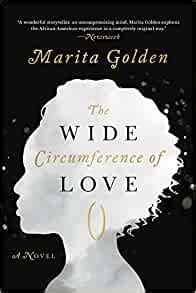A Quote by Derrick Grayson
Under slavery, families were ripped apart, and it was a desire of black men and black women to be together with their loved ones. Family meant something. Spouses meant something.
Related Quotes
I nodded. A man's world. But what did it mean? That men whistled and stared and yelled things at you, and you had to take it, or you get raped or beat up? A man's world meant places men could go but not women. It meant they had more money,and didn't have kids, not the way women did, to look after every second. And it meant that women loved them more than they loved the women, that they could want something with all their hearts, and then not.
Arguably the most important parallel between mass incarceration and Jim Crow is that both have served to define the meaning and significance of race in America. Indeed, a primary function of any racial caste system is to define the meaning of race in its time. Slavery defined what it meant to be black (a slave), and Jim Crow defined what it meant to be black (a second-class citizen). Today mass incarceration defines the meaning of blackness in America: black people, especially black men, are criminals. That is what it means to be black.
They wanted black women to conform to the gender norms set by white society. They wanted to be recognized as 'men,' as patriarchs, by other men, including white men. Yet they could not assume this position if black women were not willing to conform to prevailing sexist gender norms. Many black women who has endured white-supremacist patriarchal domination during slavery did not want to be dominated by black men after manumission.
The breakdown of the black community, in order to maintain slavery, began with the breakdown of the black family. Men and women were not legally allowed to get married because you couldn't have that kind of love. It might get in the way of the economics of slavery. Your children could be taken from you and literally sold down the river.
We black women must forgive black men for not protecting us against slavery, racism, white men, our confusion, their doubts. And black men must forgive black women for our own sometimes dubious choices, divided loyalties, and lack of belief in their possibilities. Only when our sons and our daughters know that forgiveness is real, existent, and that those who love them practice it, can they form bonds as men and women that really can save and change our community.
The welfare state has done to Black Americans what slavery (and Jim Crow and racism) could not have done. . .break up the black family. Today, just slightly over 30 percent of black kids live in two-parent families. Historically, from the 1870s on. . . 75-90 percent of black kids lived in two-parent families.
The inspiration for this movie [Something New] was this Newsweek article that came out a couple of years ago that talks about 42.4 percent of black women in America aren't married. Black women are shooting up the corporate ladder way faster than our black male counterparts. And (black men) are either dating outside their race, in jail or dying. And so if you want to have a family, you want to be married, you have to look at other options.
Think of US slavery in 1850, or the subjection of women. Both of these injustices could have been - and were! - defended by pointing out, quite correctly, that this situation of slaves and women had been improving throughout the preceding century. Slaves, in particular, were worked less hard, beaten and raped less frequently, better fed, and less often ripped apart from their families. So would a celebration of moral progress have been appropriate in 1850? Surely not. Slavery could have been and should have been abolished - then, if not before.


































